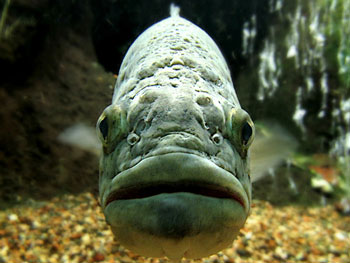Fishing Tackle Tips: Three Ways You Can Ensure You’re Getting the Right Gear
October 13, 2011Fettuccine with Fresh Tuna Sauce
October 15, 2011Tarpon fishing is an experience. Imagine battling with a 6′, 150+ pound fish that’s putting on an unforgettable aerial extravaganza while you hold the line. The fight is spectacular. Tarpons do an impressive job of trying to throw the hook and are surprisingly successful. Tangling with a tarpon is, for many, a once in a lifetime event, making this monster fish highly prized. Catching one? Now that’s something to celebrate!
For those unfamiliar with the tarpon and tarpon fishing, we’ve compiled a list of fish facts about this very cool species.
- Marine biologists believe that large female tarpon can lay up to 15,00,000 eggs. During spawning, dozens of fish will swim in tight circles as the males fertilize the eggs released by the females.
- Tarpon, in a pinch, can breathe surface air.
- Catch and release is the way to go when fishing for tarpon. While the flesh of this fish is quite tasty, it’s also very bony, and permits are often required to keep a tarpon catch.
- Tarpon rise to the surface periodically to gulp air. This is called rolling, and it’s a sure giveaway that there are more tarpon under the surface. Sometimes hundreds of these fish can be seen rolling near river mouths.
- There are two species of tarpon, though most people think of the huge Atlantic tarpon rather than its smaller Indo-Pacific cousin.
- Tarpon is the official state saltwater fish of Alabama.
- When stressed, tarpon will bite. Combine this with their tendency to jump and you end up with a unique problem. A tarpon minding its own business may accidentally jump into a nearby boat – and when it does, watch out!
- Juvenile tarpon, which generally weigh about 20 pounds, make for a fun catch experience because they jump aggressively in protest when hooked.
- Tarpon fishing requires quiet because as soon as these fish hear you coming, they’ll book and you’ll have to hunt them all over again.

